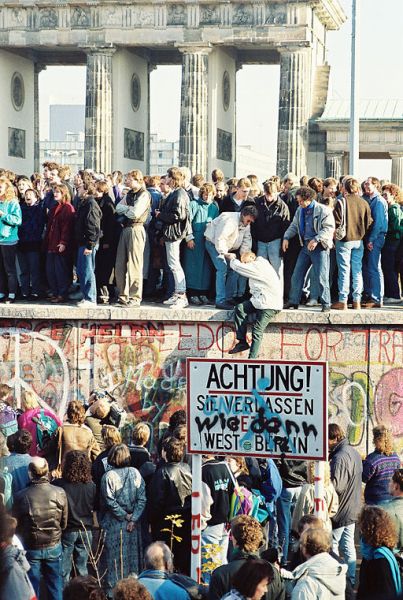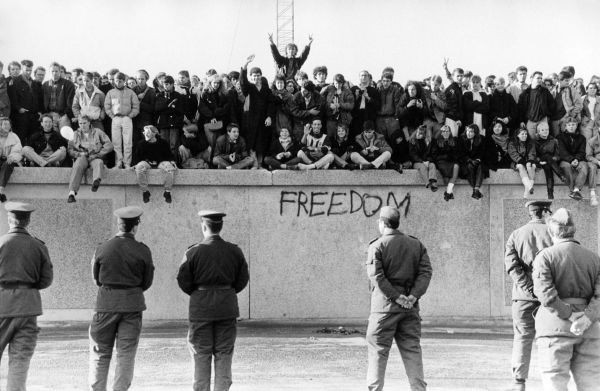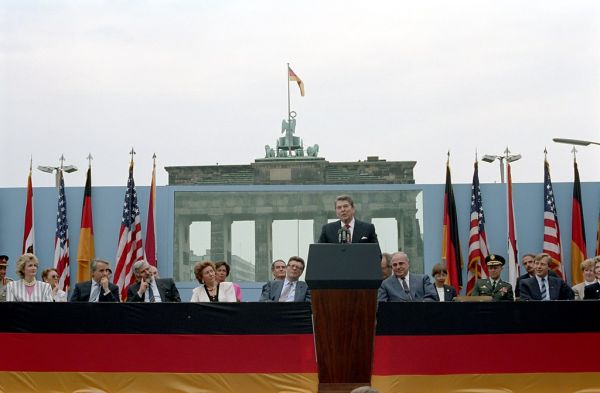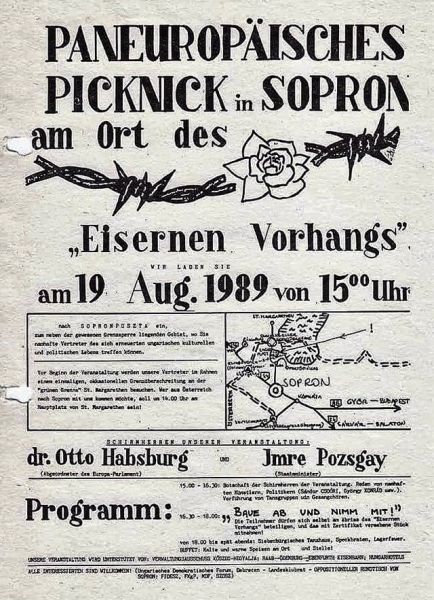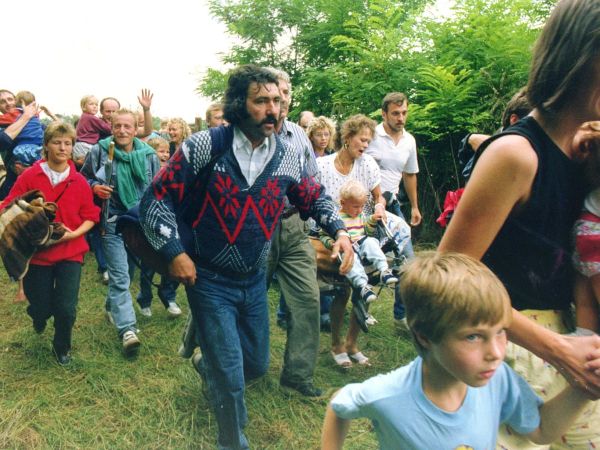Meditations on Freedom 1
The Fall of the Berlin Wall
I graduated from college in 1976, and if my reader graduated a few years on either side of 1976, I would like to ask them a basic question: WHAT IS THE MOST IMPORTANT EVENT IN YOUR LIFETIME?
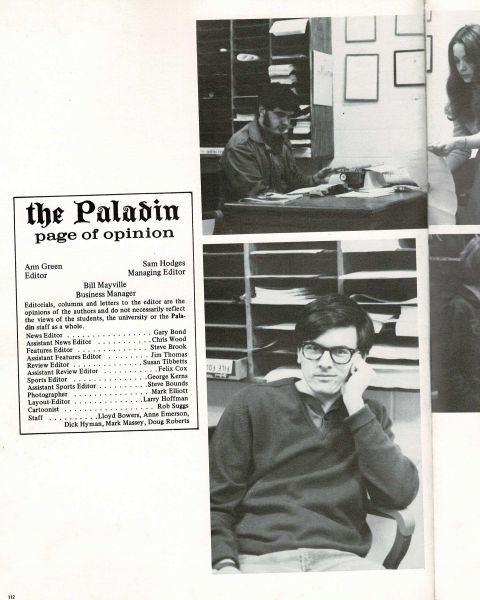
Lloyd, 1975, a skinny, Buddha-like intellectual.
At the time, I would have talked at length about, "the cute girl who told me off and broke my heart." I would have talked about getting sexual revenge on her with another girl. But the years sort out the relevance and importance of things. A lot of Americans would say that the resignation of the sitting President Richard Nixon and the sitting Vice President Spiro Agnew had the greatest effect on them. For me, the most important event in my lifetime is unquestionably the collapse of the Berlin Wall, and its signalling the end of the Soviet system. It came down just before midnight on November 9, 1989.
First of all, watching jubilant East Germans pour through the fortified gate at Checkpoint Charlie touched me viscerally. Something about a GREAT ESCAPE affects human-kind in his primordial self. The Escapees from the East prowled the streets of West Berlin all night long and into the next day, drinking up the free beer that West Berliners bought for them. Their East German currency was all but worthless to them, now. All through the next day, November 10, 1989, they continued their celebation, standing atop the breached Wall to fling their scorn at the clueless East German border guards.
With November 9, 2021, just around the corner, let us reflect on the last days of the Berlin Wall. Berlin itself is full of reminders. Checkpoint Charlie still stands in the Friedrichstraße, as it did during the Soviet-era, still rimmed with sandbags. The big sign with the warning, "You are leaving the Allied Sector," in the languages of the Four Powers, stands at the curb of the Friedrichstraße. Maybe that sign will remind people of the philosophical chasm that divided the regimented Soviet system from ours—divided the freedom-loving West from the totalitarian East, which controlled its people with browbeating and fear.
In the old days, if you went beyond that sign, you took your life in your hands. The trigger-happy East German border-guards felt threatened by freedom-loving publications, freedom-loving clothes, and personal happiness. They might detain you. Talk about quarantining! If you talk too much about owning a nice car and have a pocketful of cash, if you harp on and on about something being better than the East German model—watch your step!
The actual collapse of the Berlin Wall took about twenty minutes, but the events that anticipated the end of it occured over a much longer period of time. In June, 1982, U.S. President Ronald Reagan visited West Berlin and said, "I'd like to ask the Soviet leaders one question. . . . Why is the Wall there?" The question had been on my mind for years. Reagan's asking it filled an historical void for me. Why did East German soldiers kill 136 people who tried to escape? Maybe many more would have tried, if they could have given themselves a fifty-fifty chance of surviving. What kind of country kills people who want to leave?
The question must have resonated in President Reagan as well. In June, 1987, he returned to Berlin, and this time gave a formal speech right in front of the Brandenburg Gate, that served as a landmark of the divided city. By this time, Mikail Gorbachev had assumed power in the Soviet Union, intent on making some changes with Glaznost (Openness) and Perestroika (Reformation).
West German Chancellor Helmut Kohl sat behind Reagan, to his right, and further to the right, West Berlin Mayor Eberhard Diepgen, along with other dignitaries. Reagan spoke frankly to the audience but addressed chiefly the Soviet Premier: "General Secretary Gorbachev, if you seek peace, if you seek prosperity for the Soviet Union and Eastern Europe, if you seek liberalization, come here to this gate. Mr. Gorbachev, open this gate!" Reagan had to wait for the cheering to die down. Then he added with emphasis, "Mr. Gorbachev, tear down this wall!"
Then came the "Sopron Picnic," as history has dubbed it, on August 19, 1989. East Germans often took their vacation-time in Sopron, Hungary. Co-incidentally, the government of Austria decided to ask the government of Hungary if it would like to demilitarize the border they shared—to open their gate, so to speak. Hungary agreed, and the two nations scheduled a "Picnic" to commemorate the occasion. They left leaflets in the places that East German tourists frequented.
When the Picnic started, hundreds of East Germans hiding in the forest nearby took their chances and sprinted for the border. As the border guards cut away the barbed wire, the East Germans streamed across the border into Austria. No one had expected so many. Those present estimated the number at 600, some clutching their children—others weeping with relief. They left their rag-tag East German cars and most of their belongings behind in Sopron. Once again, we feel that visceral sympathy for ESCAPEES. YouTube has posted many videos of their escape. You can't help but be moved!
Then, all those escapees had to go to sleep somewhere. They had to wake up sometime, find a job, and learn how to live in a free society. They had to start over, making their way in a new nation that lacked the structure and impress of the old. No one gave them instructional time to orientate them to the new demands—to respond to the unstructured life and hands-off government.
A lot of them did not like the changes so much. The next thing you know, someone resurrected the Communist Party under a new name, Die Partei des demokratischen Sozialismus, or PDS. The PDS merged with other Marxist parties to become a new party, Die Linke, known in English by its literal translation, "The Left." Unreconstructed Commies, plain and simple, who want to bring back all the failed policies of the East German nation, couched in the same deceptively humanitarian rhetoric. It's hard to believe they could fool anyone now.

